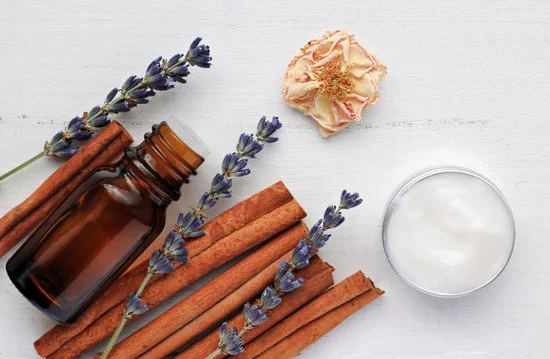Aromatherapy oils are becoming increasingly popular in holistic wellness practices as individuals seek natural and alternative methods for promoting physical, emotional, and mental well-being. These oils, derived from plants and botanical sources, have been used for centuries for their therapeutic properties. In this article, we will explore the different aromatherapy oils and their effects on the body and mind.
Aromatherapy is the practice of using essential oils to enhance overall health and well-being. It involves inhaling or applying these oils topically to stimulate the senses and promote relaxation, balance, and healing. The sense of smell plays a powerful role in our emotions, memory, and mood, which is why aromatherapy has been regarded as an effective method for relieving stress, anxiety, insomnia, and various physical ailments.
The science behind aromatherapy oils lies in their ability to interact with the body’s limbic system. When inhaled or applied topically, the molecules from essential oils enter the nasal passages or penetrate the skin and then travel to the olfactory bulb or bloodstream. From there, they can influence various physiological responses such as heart rate, blood pressure, hormones, neurotransmitters, and immune function. Each essential oil possesses unique chemical components that contribute to its specific therapeutic properties.
As we delve deeper into understanding essential oils and their benefits in holistic wellness practices, we will explore popular aromatherapy oils such as lavender oil for relaxation and sleep promotion; eucalyptus oil for respiratory issues; lemon oil for energizing purposes; tea tree oil for skin care; peppermint oil for digestive discomfort; rosemary oil for cognitive enhancement; frankincense oil for meditation; among others.
Join us on this journey through the world of aromatherapy to discover how these natural remedies can enhance your overall well-being.
Understanding the basics of aromatherapy
Aromatherapy is a holistic wellness practice that has been gaining popularity in recent years. But what exactly is aromatherapy and how does it work? In this section, we will explore the basics of aromatherapy and its mechanisms.
Aromatherapy is the use of essential oils derived from plants to improve physical and emotional well-being. These essential oils are highly concentrated substances that capture the plant’s natural scent and therapeutic properties. When inhaled or applied to the skin, they can stimulate certain areas of the brain to promote relaxation, enhance mood, reduce stress, alleviate pain, and support overall health.
The key principle behind aromatherapy is the connection between scent and emotion. Our sense of smell is closely linked to our emotions and memories because the olfactory system bypasses our conscious thinking part of our brain and goes directly to areas responsible for emotion and memory. This makes scents particularly powerful in triggering emotional responses and influencing how we feel.
When we inhale essential oils, the molecules in them interact with receptors in our nose called olfactory receptors. These receptors send signals to the limbic system – a complex network of brain structures involved in processing emotions, behavior, memory, and hormonal regulation. The limbic system then releases neurotransmitters like serotonin or endorphins that can induce a range of effects on our mood, stress levels, hormone balance, and overall well-being.
| Key Points |
|---|
| Aromatherapy uses essential oils derived from plants for holistic wellness |
| Essential oils stimulate specific areas of the brain connected to emotions |
| Inhaling essential oil molecules triggers responses in the limbic system |
| The limbic system releases neurotransmitters that affect mood, stress, and overall well-being |
The science behind aromatherapy oils
Aromatherapy oils have been used for centuries to promote physical, emotional, and mental well-being. But how exactly do these essential oils interact with the body and mind? The science behind aromatherapy oils lies in their chemical composition and their ability to stimulate our senses.
Essential oils are highly concentrated plant extracts that capture the natural fragrances and healing properties of plants. When these oils are inhaled or applied to the skin, they interact with the body through two main mechanisms: olfaction and absorption.
Olfaction refers to the sense of smell. When we inhale aromatherapy oils, the odor molecules travel through our nasal passages and bind to olfactory receptors. These receptors send signals to the brain’s limbic system, which is responsible for emotions, memory, and behavior. This interaction can have a profound effect on our mood, stress levels, and overall well-being.
Furthermore, when essential oils are applied topically, they are absorbed by the skin and enter the bloodstream. From there, they can travel throughout the body and exert therapeutic effects on various systems. The compounds in essential oils can have analgesic (pain-relieving), anti-inflammatory, antimicrobial, and other healing properties.
Each essential oil has its own unique chemical makeup that determines its specific therapeutic properties. For example, lavender oil contains compounds such as linalool and linalyl acetate that have calming and sedative effects on the nervous system. On the other hand, eucalyptus oil contains eucalyptol which helps clear respiratory issues by loosening phlegm and improving airflow.
Popular aromatherapy oils and their therapeutic properties
Popular Aromatherapy Oils
Aromatherapy has gained popularity in recent years due to its potential to improve emotional well-being, reduce stress, and promote physical health. There are a wide variety of essential oils available, each with its own unique therapeutic properties. Understanding the effects of different aromatherapy oils can help individuals choose the best oil for their specific needs.
Lavender Oil: The Ultimate Relaxation Oil
One of the most popular aromatherapy oils is lavender oil, known for its ability to calm the mind and promote better sleep. Its soothing properties make it an excellent choice for those who struggle with anxiety or insomnia. Lavender oil can be diffused into the air, added to bathwater, or applied topically (usually diluted) for maximum benefits.
Eucalyptus Oil: Clearing Respiratory Issues and Enhancing Mental Focus
Eucalyptus oil is commonly used for respiratory issues such as congestion or sinusitis due to its decongestant properties. It can clear the nasal passages and promote easier breathing. In addition, eucalyptus oil has been found to enhance mental focus and concentration, making it beneficial for those needing a cognitive boost during work or study sessions.
Lemon Oil: Energizing and Uplifting Properties
Lemon oil is well-known for its energizing and uplifting properties. Its fresh citrus scent can help combat tiredness and improve mood. Lemon oil is often used in aromatherapy as a natural alternative to synthetic air fresheners or candles. It can be diffused into the air or added to homemade cleaning products for a refreshing aroma.
Tea Tree Oil: Powerful Antibacterial and Antiviral Properties
Tea tree oil is renowned for its powerful antibacterial and antiviral properties. It is commonly used in skincare products due to its ability to fight acne and other skin conditions. Furthermore, tea tree oil can boost the immune system, making it a valuable addition to an aromatherapy routine during cold and flu seasons. However, it is important to dilute tea tree oil before applying it topically.
Peppermint Oil: Soothing Digestive Discomfort and Relieving Headaches
Peppermint oil offers a wide range of benefits, including soothing digestive discomfort such as bloating or indigestion. It can also provide relief from headaches and muscle tension when applied topically or inhaled. Peppermint oil has a cooling effect on the skin and can create a refreshing sensation when used in massage oils or balms.
Rosemary Oil: Enhancing Memory and Cognitive Function
Another popular aromatherapy oil is rosemary oil, which has been found to enhance memory and cognitive function. Its stimulating properties make it an ideal choice for studying or work productivity. Rosemary oil can be diffused into the air or applied topically (diluted) for an aromatic boost during mental tasks.
Frankincense Oil: Spiritual and Grounding Properties
Frankincense oil is renowned for its spiritual and grounding properties, making it ideal for meditation practices or reducing anxiety. Its calming scent can create a peaceful atmosphere, promoting relaxation and stress relief. Frankincense oil can be diffused, inhaled directly from the bottle, or added to bathwater for maximum benefits.
Lavender oil
The Benefits of Lavender Oil
Lavender oil is one of the most widely used and well-known aromatherapy oils due to its multitude of therapeutic properties. This essential oil is extracted from the lavender plant through steam distillation, capturing its delicate floral scent and powerful healing properties. Lavender oil has been used for centuries for its ability to calm the mind, promote relaxation, and improve sleep quality.
Promoting Relaxation and Calming the Mind
One of the primary uses of lavender oil is its ability to induce a sense of deep relaxation and tranquility. The soothing aroma of lavender oil has been shown to slow down the activity of the nervous system, leading to a state of calmness and reduced anxiety. It can effectively alleviate symptoms of stress and tension by promoting feelings of peace and serenity.
Improving Sleep Quality
Lavender oil is widely recognized for its sleep-enhancing benefits. Its sedative properties help relax both the mind and body, making it easier to fall asleep and stay asleep throughout the night. Use lavender oil in a diffuser or add a few drops to your pillowcase before bedtime to experience a more restful sleep. Researchers have found that lavender oil increases slow-wave sleep, also known as deep sleep, which is crucial for physical restoration and rejuvenation.
Other Therapeutic Uses
In addition to relaxation and improving sleep quality, lavender oil has an array of other therapeutic uses. It can help relieve headaches, reduce muscle tension, soothe skin irritations or inflammation, alleviate menstrual cramps, and promote overall emotional wellbeing. Additionally, lavender oil has antiseptic properties that can aid in wound healing and prevent infection.
Overall, lavender oil offers a wide range of holistic benefits that make it an essential addition to any aromatherapy collection. Its relaxing effects on both the mind and body make it a valuable tool for managing stress, promoting better sleep, and enhancing overall wellness.
Eucalyptus oil
Eucalyptus oil is a popular essential oil known for its therapeutic benefits in clearing respiratory issues and enhancing mental focus and concentration. With its refreshing and invigorating scent, eucalyptus oil has been widely used in aromatherapy practices to alleviate symptoms of respiratory conditions such as congestion, cough, and sinusitis.
One of the main active compounds in eucalyptus oil is called eucalyptol, which has been found to have expectorant properties that can help loosen phlegm and mucus, making it easier to clear the airways. Inhaling eucalyptus oil vapors can provide relief from blocked or congested noses, chest congestion, and other respiratory discomforts. Furthermore, eucalyptus oil also possesses anti-inflammatory properties that can help reduce inflammation in the airways.
Apart from its respiratory benefits, eucalyptus oil is also known for its ability to enhance mental focus and concentration. The energizing aroma of eucalyptus oil stimulates the brain and promotes alertness and mental clarity. Many individuals find that using eucalyptus oil during work or study sessions helps improve their productivity and cognitive performance.
In order to experience the full benefits of eucalyptus oil, there are various methods of application. Inhalation is one common method by adding a few drops of eucalyptus oil to a diffuser or inhaling directly from the bottle.
Another way is to dilute the essential oil with a carrier oil such as coconut or jojoba oil and apply it topically on the chest or throat area for respiratory relief. It is important to note that eucalyptus oil should not be ingested orally unless under the guidance of a qualified healthcare professional.
| Therapeutic Properties | Benefits |
|---|---|
| Expectorant | Relieves respiratory congestion and cough |
| Anti-inflammatory | Reduces inflammation in the airways |
| Energizing | Enhances mental focus and concentration |
Lemon oil
Lemon oil is one of the most popular and widely used aromatherapy oils, known for its energizing and uplifting properties. It is extracted from the peel of lemons through a process of cold-pressing, ensuring that the natural compounds and therapeutic benefits are preserved.
One of the main benefits of lemon oil is its ability to combat tiredness and boost energy levels. The scent of lemon has been shown to have an invigorating effect on both the mind and body. Inhaling the aroma of lemon oil can help stimulate the nervous system, increase alertness, and reduce fatigue. This makes it an ideal choice for those who need a quick pick-me-up during a slump or those struggling with feelings of lethargy or exhaustion.
In addition to its energizing properties, lemon oil is also known for its mood-enhancing effects. The fresh, citrusy scent of lemon has a naturally uplifting quality that can help improve mood and alleviate symptoms of depression or anxiety.
Research suggests that lemon oil can interact with neurotransmitters in the brain, such as serotonin, which plays a key role in regulating mood and emotions. By promoting the production and release of serotonin, lemon oil can have a positive impact on overall mental well-being.
There are several ways to incorporate lemon oil into your aromatherapy practice. One option is to use a diffuser or vaporizer to disperse the aroma throughout a room, creating an uplifting atmosphere.
Alternatively, you can add a few drops of lemon oil to a carrier oil (such as sweet almond or jojoba) and use it for massage or as an ingredient in homemade skincare products. It’s important to dilute the essential oil properly before applying it directly to the skin, as pure lemon oil may cause irritation or sensitivity in some individuals.
Overall, lemon oil offers a refreshing and invigorating experience that can help combat tiredness and improve mood. Its natural properties make it an excellent choice for those seeking a natural and holistic way to boost energy levels and lift spirits. Whether used in a diffuser, as part of a massage blend, or in homemade skincare products, lemon oil can be a valuable addition to any aromatherapy routine.
Tea tree oil
Tea tree oil is well-known for its powerful antibacterial and antiviral properties, making it a popular choice in aromatherapy for skin care and boosting the immune system. Derived from the leaves of the tea tree, scientifically known as Melaleuca alternifolia, this essential oil offers a wide range of benefits for overall wellness.
One of the primary uses of tea tree oil is in skincare. Its antibacterial properties make it effective in treating acne and reducing inflammation. Tea tree oil can help unclog pores, kill bacteria on the skin’s surface, and reduce redness and swelling associated with breakouts.
It can also aid in healing wounds, cuts, and minor burns due to its antiseptic properties. Many people also use tea tree oil as a natural remedy for fungal infections like athlete’s foot or nail fungus.
In addition to its benefits for skincare, tea tree oil has been found to have immune-boosting properties. The oil contains compounds that stimulate the body’s natural defense mechanisms against pathogens.
When used topically or diffused into the air, tea tree oil can help prevent respiratory infections such as colds and flu by killing airborne bacteria and viruses. It is important to note that while tea tree oil can be safely used on the skin or diffused into the air, it should not be ingested as it can be toxic if swallowed.
Tea tree oil can be used in various ways for its antibacterial and antiviral properties. It can be diluted with a carrier oil like coconut or jojoba oil before applying it topically to the skin or added to bath water for an invigorating soak.
For respiratory support, a few drops of tea tree oil can be added to a diffuser or steaming water to inhale its medicinal benefits. As with any essential oil, it is essential to perform a patch test before applying it directly to the skin and consult with a healthcare professional for any underlying health conditions or concerns.
Tea tree oil is a versatile and potent essential oil that offers numerous health benefits. Whether used for skin care or immune support, its antibacterial and antiviral properties make it a valuable addition to any aromatherapy routine. With proper usage and dilution, tea tree oil can help enhance overall well-being and maintain healthier skin.
Peppermint oil
Peppermint oil is one of the most popular and versatile essential oils used in aromatherapy. It is well-known for its soothing properties, particularly when it comes to digestive discomfort such as bloating, indigestion, and nausea. The active compounds in peppermint oil, especially menthol, have been found to relax the muscles of the gastrointestinal tract, helping to relieve these uncomfortable symptoms.
Soothing Digestive Discomfort
Peppermint oil is often used as a natural remedy for various digestive issues. It can help to alleviate spasms in the muscles of the stomach and intestines, providing relief from conditions like Irritable Bowel Syndrome (IBS) and indigestion. When applied topically or inhaled through a diffuser, peppermint oil can relax the muscles and reduce abdominal pain and cramping.
For those experiencing nausea or motion sickness, peppermint oil can be particularly helpful. Inhaling the aroma of this oil has been shown to reduce feelings of nausea and may even alleviate symptoms of chemotherapy-induced nausea.
Relieving Headaches and Muscle Tension
Another valuable benefit of peppermint oil is its ability to relieve headaches and muscle tension. When applied topically in a diluted form on the temples or other areas of tension, it provides a cooling sensation that eases headaches and reduces pain.
Peppermint oil can also be used for soothing sore muscles after an intense workout or physical activity. Its analgesic properties help to relax muscles by increasing blood flow to the area when topically applied with carrier oils such as coconut or jojoba oil.
Rosemary oil
Rosemary oil is a popular and versatile essential oil that is known for its ability to enhance memory and cognitive function. It has been used for centuries in traditional medicine and is now gaining recognition in the field of aromatherapy.
One of the key benefits of rosemary oil is its ability to improve memory and concentration. Research has shown that the aroma of rosemary can enhance memory, mental clarity, and cognitive performance.
In a study published in the journal Therapeutic Advances in Psychopharmacology, subjects who were exposed to rosemary aroma performed better on memory-related tasks compared to those who were not exposed to the scent. This makes rosemary oil an ideal choice for individuals who are studying or working on tasks that require focus and mental agility.
Aside from its memory-enhancing properties, rosemary oil also offers other benefits for overall brain health. It is believed to have a neuroprotective effect, meaning it helps protect the brain from damage caused by oxidative stress. This can have long-term benefits for preventing age-related cognitive decline and promoting overall brain health.
In addition to its effects on cognition, rosemary oil also has stimulating properties that can help combat mental fatigue and improve energy levels. It’s an excellent option for when you need a natural pick-me-up during times of fatigue or low energy.
To experience the benefits of rosemary oil, there are various ways you can use it in aromatherapy. You can diffuse it using an essential oil diffuser or inhale it directly from the bottle. Alternatively, you can create your own blend by combining rosemary oil with other complementary essential oils like peppermint or lemon.
Overall, rosemary oil offers a natural and holistic approach to enhancing memory, cognition, and productivity. Its uplifting scent and cognitive-boosting properties make it a valuable tool for anyone looking to improve their mental performance or study more effectively.
Frankincense oil
Frankincense oil is a popular aromatherapy oil known for its spiritual and grounding properties. It has been used for centuries in various religious and spiritual practices, and its therapeutic benefits extend beyond the physical realm. This section will explore the unique qualities of frankincense oil, its effects on reducing anxiety, and its suitability for meditation.
One of the key properties of frankincense oil is its ability to promote a sense of calmness and tranquility. Its woody and earthy aroma can have a grounding effect on the mind, helping to reduce stress and anxiety. Through inhalation or topical application, frankincense oil can help quieten racing thoughts, instilling a sense of peace and relaxation.
Additionally, frankincense oil has long been associated with spiritual practices. It is often used in meditation and prayers due to its ability to enhance focus and promote a deeper connection with oneself or higher powers. Its soothing properties can create an environment conducive to introspection, allowing individuals to achieve a state of mindfulness more easily.
To experience the benefits of frankincense oil during meditation or when seeking relief from anxiety, there are several ways it can be incorporated into your routine:
- Inhalation: Add a few drops of frankincense oil to an essential oil diffuser or inhale directly from the bottle.
- Topical application: Dilute frankincense oil with a carrier oil like jojoba or coconut oil before applying it to your temples, wrists, or chest.
- Meditation ritual: Create a calming space by diffusing frankincense oil while practicing mindfulness or incorporate it into pre-meditation rituals like deep breathing exercises.
It is important to note that while many people find frankincense oil beneficial for reducing anxiety and promoting grounding during meditation, individual experiences may vary. It’s always recommended to start with small amounts and monitor your body’s response before using it more extensively.
Overall, frankincense oil provides a unique blend of spiritual and grounding properties that make it an ideal choice for those seeking relaxation, anxiety relief, or enhanced meditation experiences. By incorporating this aromatic oil into your holistic wellness practices, you can tap into its centuries-old legacy and discover the transformative power it holds.
Best practices for using aromatherapy oils
When using aromatherapy oils, it is important to follow some best practices to ensure a safe and effective experience. Here are some safety tips to keep in mind:
- Always dilute essential oils before applying them topically. Most essential oils should not be used directly on the skin as they can cause irritation or sensitivity. Dilute the essential oil with a carrier oil, such as jojoba oil or coconut oil, before applying it to the skin.
- Perform a patch test before using a new essential oil. Apply a small amount of diluted oil on your inner forearm and wait for 24 hours to see if any adverse reactions occur. If you experience redness, itching, or swelling, avoid using that particular oil.
- Avoid applying essential oils near sensitive areas such as eyes, ears, nose, or genitals. If accidental contact occurs, rinse thoroughly with water.
- Keep essential oils out of reach of children and pets. Some oils can be toxic when ingested or improperly used.
- If you have allergies or respiratory conditions, consult with a healthcare professional before using certain essential oils. Some oils may trigger allergic reactions or worsen existing conditions.
Blending techniques play an important role in creating customized aromatherapy blends that suit specific needs and preferences. Here are some popular blending methods:
- Dilution: To create a diluted blend for topical use, combine 5-20 drops of essential oil with 1 ounce (30 ml) of carrier oil.
- Synergy: This involves combining two or more essential oils to create a harmonious blend that enhances each oil’s properties. Choose oils that complement each other in terms of aroma and therapeutic benefits.
- Layering: Layering involves applying different essential oils one after another. Start with a base oil, then apply a middle note oil, and finish with a top note oil for a complex and long-lasting scent.
There are various application methods when it comes to using aromatherapy oils:
- Inhalation: Add a few drops of essential oil to a diffuser or inhale directly from the bottle to enjoy their aromatic benefits. Inhalation can help uplift moods, alleviate stress, and support respiratory health.
- Topical application: Massage diluted oils into the skin to promote physical well-being. Essential oils can be used in massages, added to bathwater, or applied as compresses.
- Aromatherapy bath: Add 5-10 drops of essential oil to warm bathwater and soak for 15-20 minutes. This method can promote relaxation, soothe muscles, and relieve stress.
- Aromatherapy massage: Blend essential oils with carrier oils and use them in massage therapy. This helps relax the muscles, reduce pain, and enhance overall well-being.
- Steam inhalation: Add a few drops of essential oil to hot water and inhale the steam by covering your head with a towel. Steam inhalation can provide relief from congestion and respiratory issues.
By following these best practices, you can safely and effectively incorporate aromatherapy oils into your holistic wellness routine. Remember to always read product labels, do thorough research about each oil’s properties before use, and consult with professionals if necessary.
Conclusion
In conclusion, aromatherapy oils have gained popularity in holistic wellness practices for good reason. By understanding the basics of aromatherapy and how it works, we can harness the therapeutic properties of different essential oils to benefit our physical and emotional well-being.
Throughout this article, we have explored popular aromatherapy oils and their unique effects on the mind and body. Lavender oil, known for its relaxation properties, is perfect for calming the mind and promoting better sleep. Eucalyptus oil is ideal for clearing respiratory issues and enhancing mental focus and concentration. Lemon oil offers energizing and uplifting benefits that combat fatigue and improve mood.
Tea tree oil is prized for its antibacterial and antiviral properties, making it a go-to choice for skin care and immune support. Peppermint oil soothes digestive discomforts and provides relief from headaches and muscle tension. Rosemary oil enhances memory and cognitive function, making it a great option for studying or work productivity. Lastly, frankincense oil has grounding properties that can reduce anxiety and aid in meditation.
When using aromatherapy oils, it’s important to follow best practices to ensure safety. This includes diluting oils properly, blending them appropriately, and applying them with caution. By embracing these safety tips along with the various application methods available, we can fully immerse ourselves in the world of aromatherapy oils.
By discovering the benefits of different aromatherapy oils and incorporating them into our holistic practices, we can experience a wide range of advantages for our overall well-being. Whether it’s relaxation, enhanced focus, improved mood, or even spiritual grounding, aromatherapy has something to offer everyone. So go ahead and explore this aromatic world – you may just find your own signature scent that brings balance to your mind, body, and spirit.
Frequently Asked Questions
What aromatherapy oils are good for what?
Aromatherapy oils are known for their various therapeutic benefits and can be used to address different concerns. Lavender oil is commonly used for promoting relaxation, reducing stress, and improving sleep quality. Peppermint oil is often used to alleviate headaches, relieve muscle pain, and improve digestion.
Tea tree oil is renowned for its antimicrobial properties and is commonly used for treating acne, fungal infections, and cuts or wounds. Eucalyptus oil is frequently used for respiratory issues like congestion or coughs. Additionally, citrus oils such as lemon or orange oil provide an uplifting effect and can help boost mood and energy levels.
What are the 7 essential oils?
The seven essential oils commonly used in aromatherapy are lavender, peppermint, tea tree, eucalyptus, lemon, chamomile, and rosemary. These oils have a wide range of applications due to their various therapeutic properties.
Lavender promotes relaxation and sleep, peppermint provides a cooling effect and aids digestion, tea tree has antimicrobial properties that make it suitable for skincare concerns, eucalyptus helps with respiratory problems, lemon uplifts mood and supports immunity, chamomile soothes mind and body while aiding with inflammation or skin conditions, while rosemary energizes the mind and improves focus.
What are the different types of aromatherapy oils?
There are many different types of aromatherapy oils available that offer unique therapeutic benefits. Some popular categories of aromatherapy oils include floral oils (such as rose or jasmine) that are often used for emotional support or improving skin health; woody oils (like cedarwood or sandalwood) that promote grounding and relaxation; herbal oils (such as basil or thyme) known for their stimulating effects on the mind; citruses (like bergamot or grapefruit) which are uplifting and refreshing; spicy oils (such as ginger or black pepper), which can help with circulation or digestive issues; minty oils (like spearmint or wintergreen), which provide a cool and invigorating effect; and resinous oils (like frankincense or myrrh), known for their spiritual and meditative properties.
Each of these types of oils offers specific benefits, making aromatherapy a versatile practice.

Are you looking for a natural way to improve your health and wellbeing?
If so, aromatherapy may be the answer for you.





